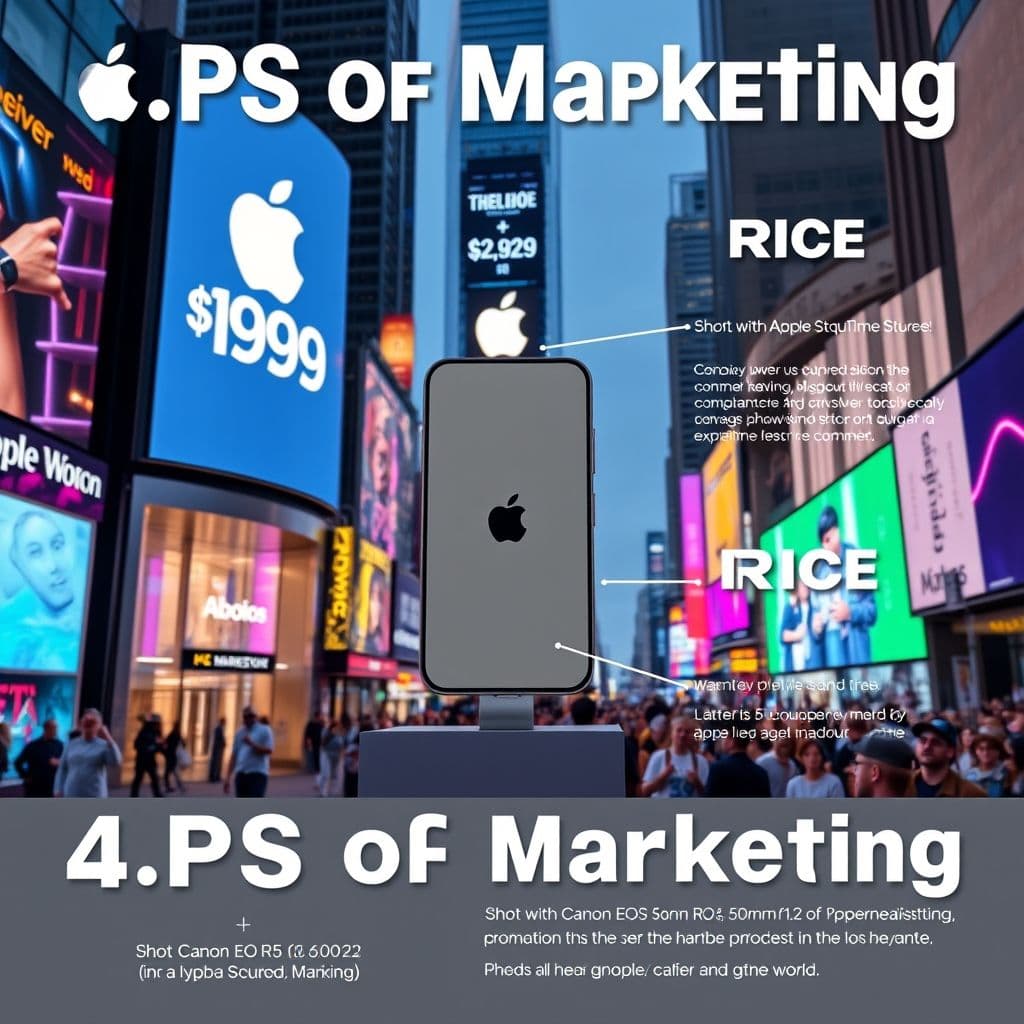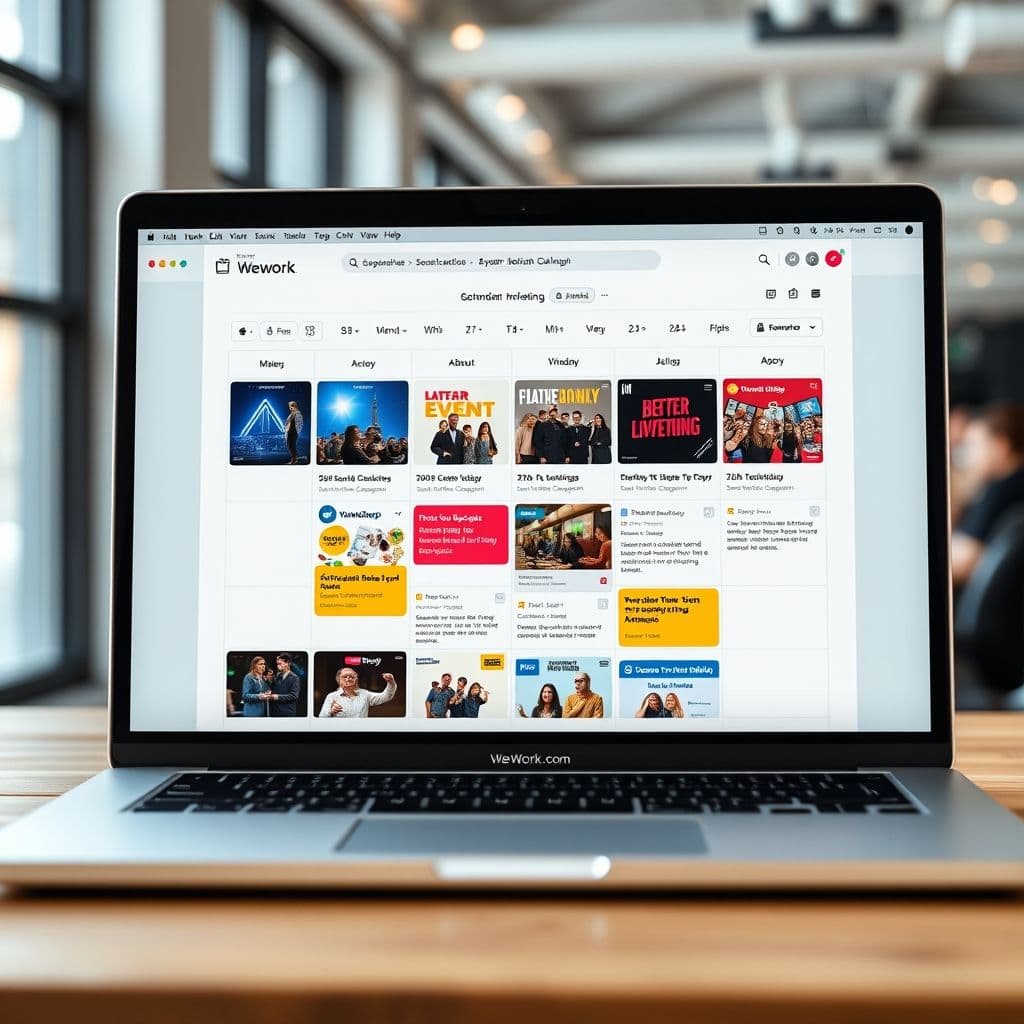Mastering Marketing Events Coordination: A Step-by-Step Guide

Marketing events are powerful tools for brand awareness, lead generation, and customer engagement. Whether you're organizing a product launch, a conference, or a webinar, mastering the art of marketing events coordination can set you apart in the competitive marketing landscape. This guide will walk you through the essential steps, from understanding marketing fundamentals to executing flawless events and continuously improving your skills. View original learning path
Step 1: Understand the Basics of Marketing
Before diving into event coordination, it's crucial to grasp the fundamentals of marketing. Start with the **Marketing Mix (4Ps)**: Product, Price, Place, and Promotion. These elements form the foundation of any marketing strategy. For example, when planning an event, your 'Product' is the event itself, 'Price' involves ticket pricing or sponsorship fees, 'Place' is the venue, and 'Promotion' covers how you'll attract attendees.
Next, focus on **Target Market Identification**. Who is your ideal attendee? Create buyer personas to understand their demographics, interests, and pain points. For instance, if you're organizing a tech conference, your target audience might include developers, startup founders, and tech enthusiasts. Tailoring your event to their needs increases engagement and attendance.

Step 2: Learn Event Planning and Coordination
Event planning is a meticulous process that requires attention to detail. Begin with the **Event Planning Process**, which includes setting objectives, defining the scope, and creating a timeline. For example, a product launch might have objectives like generating media coverage and driving pre-orders.
**Budgeting and Financial Management** is another critical aspect. Allocate funds for venue, catering, marketing, and contingencies. Use tools like Excel or specialized event software to track expenses. Always negotiate with vendors to stay within budget.
**Venue Selection and Negotiation** can make or break your event. Consider factors like capacity, location, and amenities. For a corporate seminar, a hotel conference room might be ideal, while a music festival requires an open space. Negotiate terms like cancellation policies and additional services.
Don’t overlook **Logistics and Operations Management**. This includes everything from seating arrangements to AV equipment. Create a checklist to ensure nothing is missed. For example, if your event has speakers, confirm their tech requirements beforehand.
✨ Build your personalized learning path in seconds with AI
Try SkillAI for Free →Step 3: Develop Marketing Strategies for Events
Your event’s success hinges on effective marketing. Start with **Event Marketing Objectives**. Are you aiming for brand awareness, lead generation, or community building? For instance, a charity gala might focus on raising funds and awareness.
Conduct a **Target Audience Analysis** to refine your messaging. Use surveys or social media insights to understand what resonates with your audience. If your event targets millennials, leverage platforms like Instagram and TikTok.
**Promotion and Advertising Techniques** vary based on your budget and audience. Consider email campaigns, paid ads, and influencer partnerships. For a B2B event, LinkedIn ads and industry newsletters might be most effective.

Step 4: Implement and Execute Event Marketing Plans
Execution is where planning meets reality. Create an **Event Timeline and Project Management** plan. Use tools like Trello or Asana to assign tasks and track progress. For example, send reminders to speakers two weeks before the event.
**Marketing Collateral Creation** includes designing flyers, banners, and digital assets. Ensure branding is consistent across all materials. If your event has a theme, reflect it in the visuals.
**Ticketing and Registration Management** should be seamless. Use platforms like Eventbrite or Meetup to handle registrations. Offer early-bird discounts to boost early sign-ups.
On the day of the event, **On-site Event Coordination** is key. Have a team to manage check-ins, troubleshoot issues, and engage attendees. For example, assign a 'greeter' to welcome guests and direct them.
Step 5: Continuously Improve Event Marketing Skills
The event marketing landscape is ever-evolving. Stay updated with **Industry Trends and Best Practices**. Attend webinars, read blogs, and join professional groups like MPI (Meeting Professionals International).
Invest in **Networking and Professional Development**. Connect with peers and mentors to exchange ideas. For example, join LinkedIn groups focused on event marketing.
Leverage **Technology and Tools for Event Marketing**. Explore virtual event platforms, CRM systems, and analytics tools. For instance, use HubSpot to track attendee engagement post-event.
Finally, gather **Feedback and Customer Satisfaction** insights. Send post-event surveys to understand what worked and what didn’t. Use this data to refine future events.
Conclusion
Mastering marketing events coordination requires a blend of strategic planning, creative marketing, and flawless execution. By following these steps—from understanding marketing basics to continuously improving your skills—you’ll be well-equipped to organize successful events that leave a lasting impact.
Ready to take your event marketing to the next level? Start planning your next event today and share your experiences in the comments!
🚀 Create Your Free Learning PathFrequently Asked Questions
- How long does it take to master marketing events coordination?
- Mastering event coordination depends on experience and the complexity of events you handle. With consistent practice and learning, you can become proficient in 6-12 months.
- What are common mistakes beginners make in event marketing?
- Common mistakes include poor budget planning, neglecting to promote the event early, and failing to plan for contingencies. Always start promotions early and have a backup plan for critical elements like venues or speakers.
- How can I measure the success of my marketing event?
- Success can be measured through metrics like attendance rates, engagement levels (e.g., social media interactions), lead generation, and post-event surveys. Set clear KPIs before the event to evaluate performance effectively.





